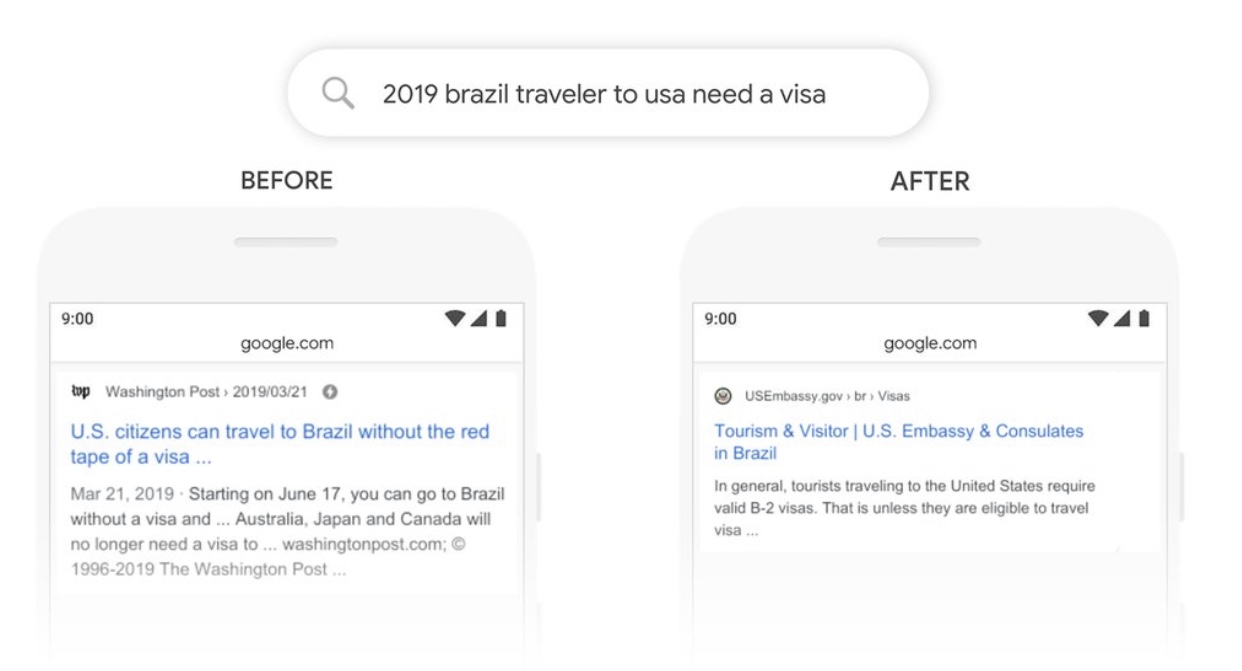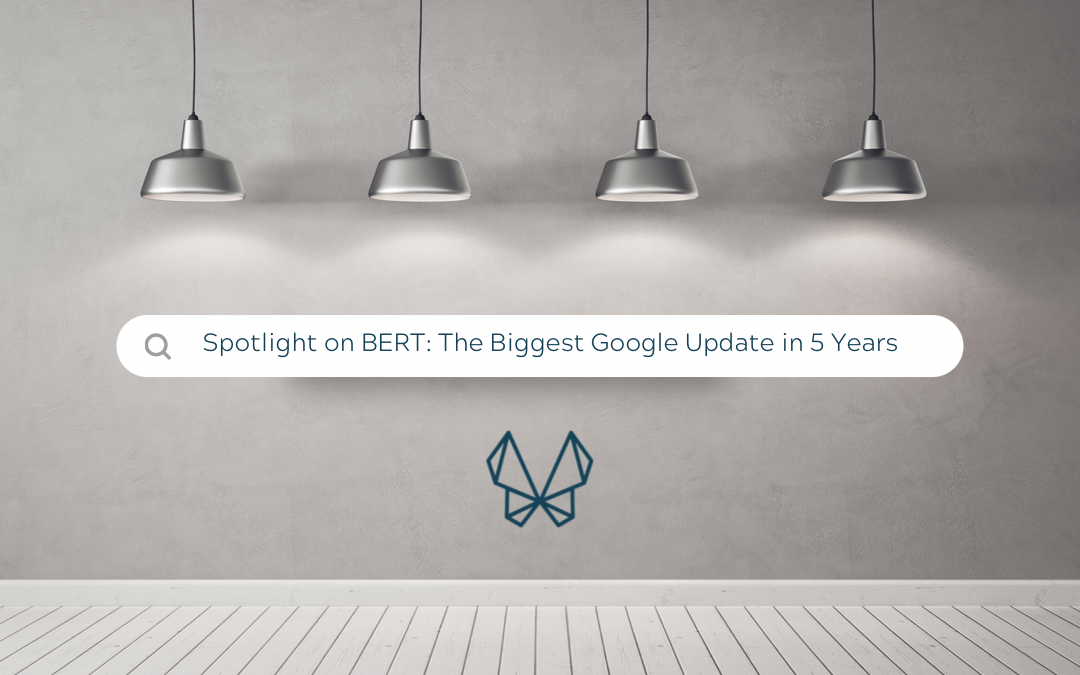SEO can be a minefield to navigate. Just when you think you’ve got to grips with the latest tricks to boost your business in the organic search results, Google move those goal posts once again. They actually move them up to 3000 times a year!
Many of the algorithm updates are small tweaks, however in 2019, Google made one of the most advanced changes in over 5 years – BERT.
Let’s get technical just got a second here. ‘BERT,’ stands for Bidirectional Encoder Representations from Transformers (geek level 6000). It uses clever Natural Language Processing (NLP) machine systems to interpret the complexity of human language. Here’s an example which shows it in action:

Google has taken a huge leap forward with this update as it works to interpret search as a human would process the search query. With around 15% of all search queries being new, this helps Google to get it right first time when showing results.
So why now? Well for one, voice search is expected to top 50% of all searches in the next 2 years. Voice searches are long tail. They’re abbreviated. The results need to adapt to this change and this update is helping Google to meet the needs of customers into 2020 and beyond.
As Google adapts to the way we search, so should we, as business owners. Our website content should be complex, not just containing keywords but long tail phrases, and an abundance of fresh content that answers the needs of those searching for what we offer.
It’s not just SEO that should be our concern, BERT has highlighted the evolving nature of search and given us food for thought on how we set our PPC campaigns. Think long tail, think voice search phrasing, don’t focus on single keywords. The 3000 updates a year to the algorithm show how important it is to evolve constantly in marketing, don’t sit still for too long or you’ll be left behind.
Want help optimising your marketing to keep up with the times? Contact us today here for a no obligation chat.


Recent Comments